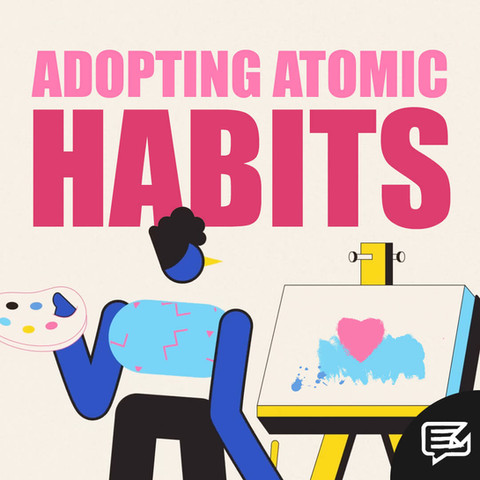
16.02.23
COULD IT BE MAGIC?
Remember the time they changed the recipe of your favourite chocolate bar for no good reason?
After sticking with its familiar squares of purple-wrapped chocolate for more than 100 years, the folks at Cadbury felt the full force of public fury back in 2012 when they rounded off the corners of Dairy Milk – with many decrying “cultural vandalism” over what was perceived to be the chocolate’s new, sweeter taste. The kicker? The recipe hadn’t changed!



Watching from the sidelines, sensory psychologist Charles Spence weighed in, explaining that foods with smoother shapes tend to register as sweeter to the brain, while angular shapes taste more bitter. Dairy Milk may have become sweeter, but it wasn’t because Cadbury had decided to add more sugar. The takeaway? Sometimes, confusing ideas can actually make a lot of sense.
‘Dairy Milk Gate’ is just one of the many surprising anecdotes used to illustrate Rory Sutherland’s case for embracing the illogical in Alchemy: The Surprising Power of Ideas That Don’t Make Sense. In this particular example, the company faced a backlash – but, as Sutherland argues – the opposite often also holds true. Did you know that local authorities in the Netherlands were able to dramatically reduce accidents by getting rid of road markings? Or that the “close” button on many elevators is a placebo, there to give impatient people the illusion that they are in control?
SIDESTEPPING LOGIC
The entirety of Sutherland’s argument can be summed up in one sentiment: sidestep logic to find magic. This is the key to what he calls alchemy: the creative gold that comes from ignoring the urge to seek out the same logical solutions as your competitors.
To unlock powerful business opportunities, you have to look at what’s happening in the gap between our objective reality and perceived reality. Our perception can be coloured by anything: our social identity, cultural norms, mood, emotional response, and so on. As is proven in courtrooms every day, what we see is not necessarily objective, factual reality. Our perception goes beyond what’s visible to the eye.
And yet, logic is prized in business – and in life in general. Systems are created to maintain order and make sure we are able to get stuff done. But as Sutherland says of his theory of the ‘psycho-logic’ :
“Psycho-logic is what has made us a successful breed of monkey […] this alternative logic emerges from a parallel operating system within the human mind, which often operates unconsciously, and is far more powerful and pervasive than you realise.”
In a logical world, people say what they mean, do what they say, and get what they want. But we don’t live in a logical world. There is, he argues, a gulf between what people say, how they feel and how they act which is crucial to finding the actual pain point – and therefore the right solution.
“For a business to be truly customer-focused, it needs to ignore what people say. Instead, it needs to concentrate on what people feel. If we remember David Ogilvy’s words: 'The trouble with market research is that people don’t think what they feel, they don’t say what they think, and they don’t do what they say.'”
He gives the example of a delayed flight. Imagine you go to the departure board to find your gate number, only to find a message that says “flight delayed”. Now imagine the same situation, but with a message that says “flight delayed 70 minutes”. You’d prefer the second one, right?
This is an example of how our psychological need to feel in control directly relates to the level of mental anguish we would feel. For better or worse, we like to know. Without those few digits, a whole host of unwelcome scenarios frustrate us as they flash through our minds.
“That loss of power and control can create far stronger feelings of annoyance than the loss of punctuality.”
MOVE OVER METRICS!
The second strand of Sutherland’s argument revolves around metrics – often held up as the pinnacle of logic. But at best, arguments can be misrepresented, and at worst, they can hamper true innovation:
“Metrics, and especially averages, encourage you to focus on the middle of a market, but innovation happens at the extremes. One great problem with metrics is that they destroy diversity because they force everybody to pursue the same narrow goal, often in the same way, or to make choices using the exact same criteria […] Cedric Villani is the holder of a Fields Medal, often described as the highest honour a mathematician can receive […] and he says, 'There are two key steps that a mathematician uses. He uses intuition to guess the right problem and the right solution and then logic to prove it.' In other words, we have conflated the second part of this process with the first.”
This is a particularly fascinating call-out. Like mathematicians, scientists first need a hypothesis to provide the basis for their experimentation. Only intuition can tell us what problem we should be working to solve in the first place. Thus, even in these most logical of fields, we’re almost always working backwards. That initial spark of genius or brilliance, which might have been arrived at with logic, has originated somewhere else. That process is alchemical, not logical. A good guess or a lucky accident is no less true when proven to be so. Contrary to what they say, it isn’t the about the journey – it’s about the destination.
Another incredibly interesting observation of Sutherland’s is this:
“The types of intelligence prized by education and by evolution seem to be very different. Moreover, the kind of skill that we tend to prize in academic settings is precisely the kind that is easiest to automate.”
He points out that data models “suffer from a psychophysics problem”. They treat reality and behaviour as if one perfectly maps onto the other, when this is not the case. Case in point: Nespresso pods. While people wouldn’t pay £49 for a jar of coffee, they are happy to pay 29p for a single pod – even though they amount to more or less the same amount of coffee. But this is why we should confront our perceived reality – not objective reality. Coffee pods may be an affordable luxury, but they are a luxury all the same. That gives them some greater meaning, and could be why we’re willing to pay more. How fortunate that the company decided to explore the idea, even though logic said it wouldn’t work.
Yet another example:
“London’s West End theatres often send out emails to people who have attended their productions in the past. […] You sold fewer tickets if you included an offer for reduced-price tickets with the email. Conversely, offering tickets at the full price seemed to increase demand. […] In avoiding discounted tickets, people are showing a high degree of second-order social intelligence. […] any theatre selling discounted tickets must have plenty to spare.”
THE VALUE OF MEANING
This brings us to the key point of Sutherland’s entire book: “We don’t value things, we value their meaning.” He goes on:
“Wine tastes better when poured from a heavier bottle. Painkillers are more effective when people believe they are more expensive. Almost everything becomes more desirable when people believe it is in scarce supply, and possessions become more enjoyable when they have a famous brand name attached.”
We are an emotional species. We might need a healthy dose of logic or structure to keep most things up and running, but in all order there’s chaos – and vice-versa. Perhaps order fulfils its purpose in giving us the desire to colour outside the lines and in doing so provides the fertile ground for the seemingly random, possibly quantum leaps that can be made when we invite in a little psycho-logic?
“Business, creativity and the arts are full of successful non-sense. In fact, the single greatest strength of free markets is their ability to generate innovative things whose popularity makes no sense.”
The bottom line? We’re on a piece of rock hurtling through space and time. If you want to attract alchemy in your endeavours, look mind-numbing conformity in the eye and let your freak flag fly.

























































